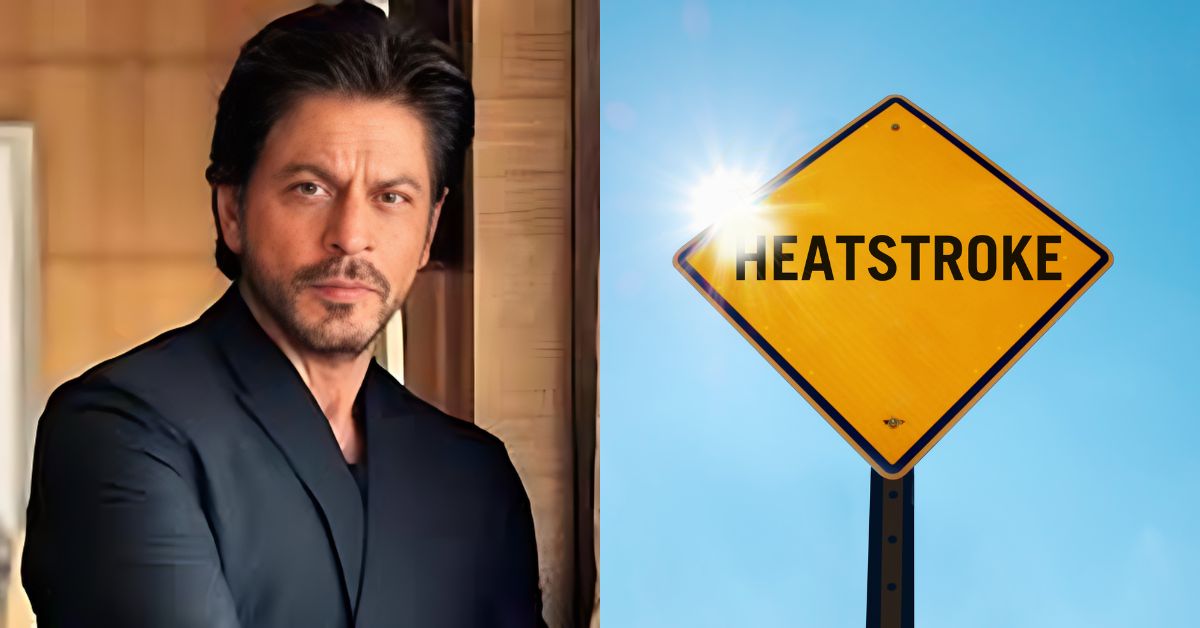On Wednesday, Bollywood actor Shah Rukh Khan was hospitalized in Ahmedabad after he experienced a heat stroke. The incident took place when the actor went to Ahmedabad for the upcoming IPL match to support his team Kolkata Knight Riders (KKR). The actor was admitted to Ahmedabad’s KD hospital where it was revealed that his health condition deteriorated due to extreme dehydration. This news has been confirmed by both Shah Rukh Khan’s wife Gauri Khan and his close friend Juhi Chawla.
Commenting upon the same, Shah Rukh Khan’s friend and Bollywood actor Juhi Chawla said, “Shah Rukh was not feeling too well last night but he is being attended to and was feeling much better this evening. God willing, he will soon be up, and in the stands on the weekend, cheering the team, as we play the finals.” (Source: News18)
The actor, along with his daughter Suhana Khan, younger son AbRam, and his manager Pooja Dadlani had come to Ahmedabad on Tuesday to watch the IPL play-off match between Kolkata Knight Riders (KKR) and Sunrisers Hyderabad (SRH) at the Narenra Modi Stadium. They were joined by other celebs like Juhi Chawla, her husband Jay Mehta, Ananya Panday, Shanaya Kapoor, Navya Nanda, and Agastya Nanda.
This incident comes to light amidst a period where India is experiencing extreme high temperatures in several regions. On Tuesday, Ahmedabad recorded a soaring temperature of 45.2 degree Celsius which went on to increase till 45.9 degree Celsius on Wednesday.
It is to be noted that a red alert has been issued by the India Meteorological Department (IMD) for various regions, including sections of Gujarat, Rajasthan, Chandigarh, west Uttar Pradesh, Punjab, Delhi, Haryana, with intense heat wave scenarios predicted for the upcoming five days.
According to Skymet, a private weather forecaster, ten cities have recorded the highest temperatures in India in the last few days, which has led them to issue a statement warning that the current heat wave is about to intensify. While Sirsa in Haryana registered 47.8 degrees, temperatures in Rajasthan, Punjab, and Uttar Pradesh have ranged from 45 to 47 degree Celsius.
As per a latest report shared by the Indian Express, Shah Rukh Khan’s health is presently stable and he’s undergoing treatment at the hospital. The news was confirmed by the Ahmedabad (Rural) Superintendent of Police Om Prakash Jat, who stated, “Khan is still undergoing treatment at the hospital. He may get discharged today.”
Assuring his fans, Khan’s manager Pooja Dadlani, also took to her Instagram handle to update on his health, where she wrote, “To all of Mr Khan’s fans and well-wishers — he’s doing well. Thank you for your love, prayers and concern.”
This particular event highlights the risks associated with heat stroke and how important it is to keep ourselves safe during extreme weather conditions.
Although there hasn’t been any noticeable increase in heatstroke cases so far, however, medical experts recommend taking precautions to prevent heat-related ailments. It is important to keep in mind that heat waves can further aggravate pre-existing diseases including diabetes and mental health disorders, as well as cause cardiovascular difficulties and electrolyte imbalances.
Stressing upon the significance of prompt identification and immediate cooling in heatstroke patients, Dr. Praveen Gupta, Principal Director & Head of Neurology at Fortis Hospital stated that quick action can avoid multiple organ failure and promote quick recovery.
Elaborating on the various kinds of risks associated with heatstroke, Dr. Suranjit Chatterjee, a Senior Consultant of Internal Medicine at Indraprastha Apollo Hospital, New Delhi explained, “It can affect the brain, making a person foggy, drowsy, and in severe cases may also lead to a person going into a coma. It can lead to kidney and liver damage as well. A cascade of such symptoms leads to death due to heat stroke.” (Source: Indian Express)
He further continued stating that the ultimate objective in these extreme situations is to quickly lower the body’s core temperature. This can be achieved through various techniques like dousing the person in cold water, giving the individual electrolytes to balance their salt levels, and encouraging them to consume cold beverages.

